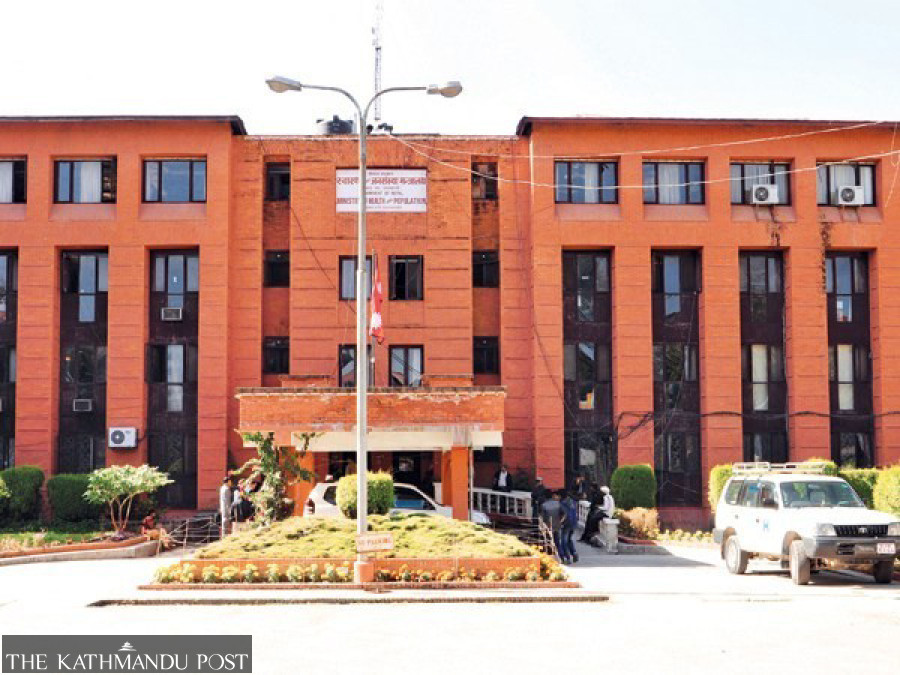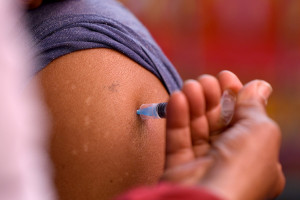Health
Nepal to focus on crucial health programmes, seeks donor support
Officials call for a bigger healthcare budget to continue maternal and child health, nutrition, and immunisation next year.
Arjun Poudel
Amid uncertainties over the resumption of healthcare funding from the USAID, the Ministry of Health and Population has said it would prioritise essential healthcare programmes while preparing the annual budget for the upcoming fiscal year.
Officials say the impact of aid suspension by the US, Nepal’s leading development partner, is already being felt, and they are bracing for further consequences in the coming days.
“We will prioritise our health care programmes based on the changing circumstances,” said Dr Prakash Budhathoky, spokesman at the Health Ministry. “We will not let basic healthcare programmes be disrupted by the aid suspension. We will categorise healthcare programmes into priority 1, priority 2 and priority 3, and try our best to ensure smooth operation of priority 1 and priority 2 programmes.”
The US government suspended nearly all foreign assistance worldwide for three months in the last week of January.The aid cut has affected Nepal’s several healthcare programmes, which have been running either through the agency’s direct funding or indirectly from dozens of non-governmental organisations.
Some of the affected programmes include the micronutrient survey, which was planned to be carried out over the last 10 years, the lymphatic filariasis transmission survey, and the promotion of exclusive breastfeeding at 18 major hospitals.
Officials say the lymphatic filariasis transmission survey is crucial for assessing disease prevalence and the impact of mass drug administration. The Health Ministry has been running a mass drug administration programme since 2003 to stamp out the disease from the country, spending vast amounts of resources.
The micronutrient survey provides critical data on vitamin A, iron, folic acid, iodine, zinc, anaemia, and overall nutrition levels in the population, which is very crucial for formulating health policies.
Other affected programmes include ‘outbreak investigation training’ for doctors, neonatal care training for hundreds of doctors and nurses, and various programmes related to the Sustainable Development Goals, including maternal and child health, nutrition, reproductive health, and family planning. Programmes under the Integrated Health Information Management System have also been affected.
As the Ministry of Finance is aware of the aid suspension and uncertainties surrounding donor funding, officials expect the ceiling for the health budget to increase for the upcoming fiscal year.
“It is impossible to continue crucial health care programmes from the existing budget ceiling next fiscal year,” said Dr Bikash Devkota, director general at the Department of Health Services. “Aid agencies have invested in many areas where the government does not spend. Several programmes in which the USAID provided funding are important and must be continued. The government must raise the ceiling for the health budget for the new fiscal year.”
Officials say that priority 1 and priority 2 programmes will include essential healthcare services, including hospital care, maternal and child health, nutrition, immunisation, and disease prevention, among others.
The government allocated Rs86.24 billion to the health sector for the ongoing fiscal year, or around 4.6 percent of the total budget.
Officials say that the size of the healthcare budget has remained low in recent years, as aid agencies like USAID had been covering a substantial share of the costs.
“We will also request other development partners to invest in high-priority programmes identified by the Health Ministry,” said Devkota.




 10.4°C Kathmandu
10.4°C Kathmandu















